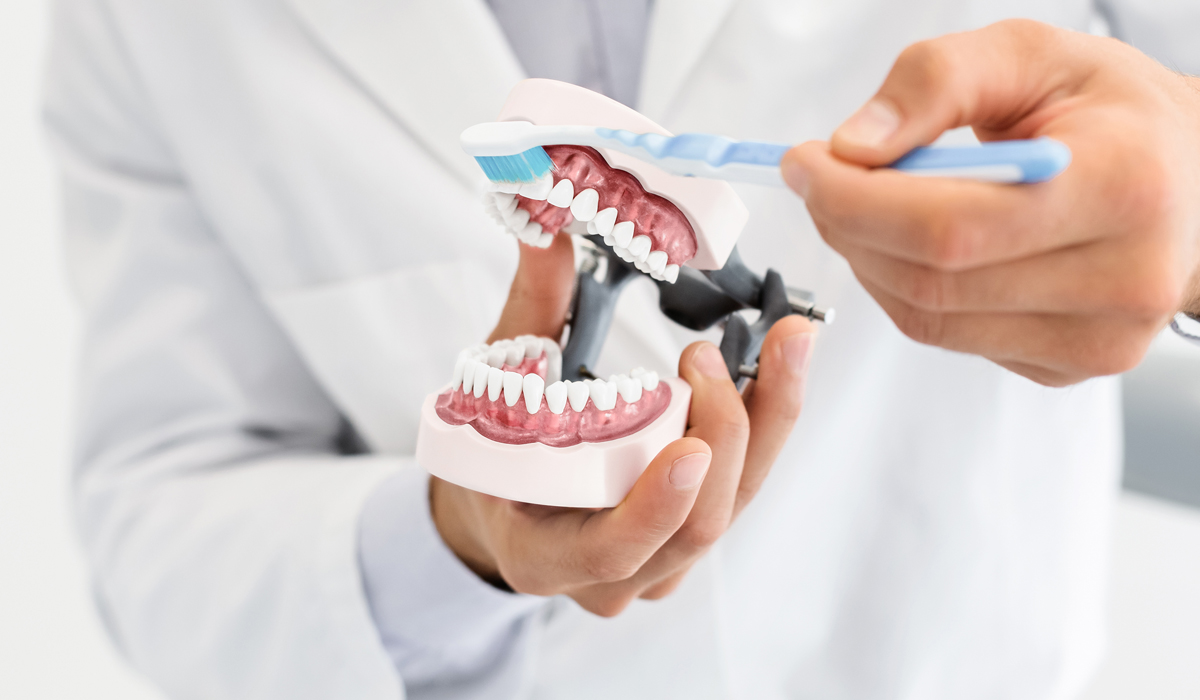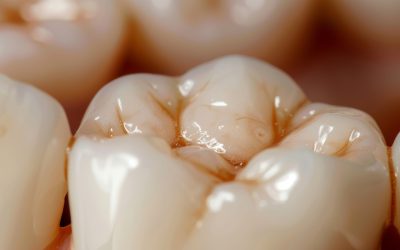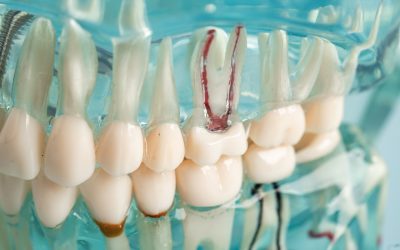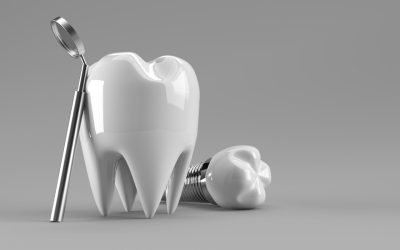Migraines are debilitating headaches that can disrupt daily life and significantly impact well-being. While common triggers for migraines include stress, lack of sleep, and certain foods, a lesser-known but crucial factor to consider is oral health. The connection between migraines and oral health is often overlooked, yet it plays a significant role in how frequently and severely migraines occur. Understanding this connection can help individuals manage their migraines more effectively by addressing the root cause—poor oral health.
Understanding the Migraine-Oral Health Connection
Many people might not immediately associate their dental health with migraine pain. Typically, migraines are thought to be caused by stress, changes in weather, diet, or other environmental factors. However, oral health can have a direct influence on the frequency and intensity of migraines. Problems within the mouth, jaw, and teeth can cause tension, inflammation, and nerve pain, which may radiate into the head and trigger or worsen a migraine.
The hidden link between migraines and oral health can often be traced to dental conditions such as temporomandibular joint (TMJ) disorders, bruxism (teeth grinding), infections, and even misaligned bites. When these oral issues are left untreated, they can cause discomfort that migrates from the jaw and mouth to other areas of the head, manifesting as a headache or full-blown migraine.
The Hidden Link Between Oral Health and Migraines
Oral health problems don’t just stay within the confines of the mouth. Conditions like TMJ disorders, bruxism, and untreated cavities can trigger a cascade of symptoms, including chronic headaches and migraines. Here’s how:
- TMJ Disorders: The temporomandibular joint connects the jaw to the skull, and any dysfunction or misalignment in this joint can lead to jaw pain, muscle tension, and headaches. TMJ disorders are a common cause of facial pain and can lead to migraine-like symptoms. The tension caused by a misaligned or overworked jaw can radiate to the temples and other parts of the head, triggering intense headaches that resemble migraines.
- Bruxism (Teeth Grinding): Bruxism refers to the grinding or clenching of teeth, often during sleep. This constant grinding puts excessive pressure on the jaw muscles, leading to jaw pain, headaches, and, in some cases, migraines. Since bruxism often occurs unconsciously, many people wake up with headaches, facial tension, and discomfort that can last throughout the day.
- Dental Infections: Infections or abscesses in the teeth or gums can cause localized pain and inflammation, which may spread to nearby nerves and lead to headaches. Dental infections can sometimes radiate pain to the head, causing migraine-like symptoms as the body tries to fight off the infection. Left untreated, these infections can worsen, causing more intense pain and increasing the likelihood of a migraine.
- Misaligned Bite: A misaligned bite or crooked teeth can place extra stress on the jaw muscles, leading to strain and tension. Over time, this can cause chronic headaches or migraines as the muscles and joints in the jaw struggle to function properly. When the bite doesn’t align, it forces the jaw into unnatural positions, which can cause muscle fatigue and pain, ultimately resulting in head pain.

Common Oral Health Issues That Can Trigger Migraines
Several specific oral health issues can contribute to the onset of migraines. Identifying these issues and addressing them with proper dental care can be key to reducing migraine symptoms:
- TMJ Disorders: As mentioned earlier, TMJ disorders cause discomfort in the jaw and surrounding muscles, often leading to chronic headaches. The muscle strain and misalignment that come with TMJ disorders can result in tension that spreads across the face, neck, and head, causing or exacerbating migraines.
- Bruxism (Teeth Grinding): Bruxism leads to excessive pressure on the jaw, muscles, and teeth, which can trigger headaches, particularly upon waking. The constant grinding motion causes the jaw muscles to become overworked, leading to tension headaches and migraines.
- Dental Infections: Untreated infections or abscesses can create significant pain in the mouth and jaw, which can radiate to the head. As the body fights off the infection, inflammation and swelling may press on surrounding nerves, leading to migraine-like symptoms.
- Misaligned Bite: If your bite is misaligned, it can create imbalances in how your jaw functions, causing muscle strain and tension. This stress on the jaw can lead to headaches, as well as more frequent migraines.
Signs That Your Oral Health Might Be Contributing to Migraines
If you experience frequent migraines, it’s essential to consider whether your oral health might be a contributing factor. Here are some signs that could indicate a connection between your dental health and migraines:
- Frequent Headaches Upon Waking Up: If you often wake up with a headache or migraine, bruxism (teeth grinding during sleep) could be the culprit.
- Pain or Clicking in the Jaw: Jaw discomfort or a clicking sound when you open or close your mouth could indicate TMJ disorders, which may contribute to headaches and migraines.
- Teeth Sensitivity or Unexplained Dental Pain: Sensitivity in the teeth or gums, especially when eating or drinking, might suggest an underlying dental issue like an infection or cavity that could be causing headaches.
- Muscle Tension in the Face or Neck: Chronic muscle tension in the face, neck, or jaw is a common symptom of TMJ disorders and can contribute to migraine pain.
- Chronic Sinus Issues Without an Apparent Cause: If you frequently suffer from sinus pain or pressure without any clear sinus infection, it could be related to dental problems, such as impacted wisdom teeth or TMJ issues, that are creating similar symptoms.
How Improving Oral Health Can Help Manage Migraines
If you suspect that oral health issues are contributing to your migraines, improving your dental care can help alleviate the problem. Here are several ways you can take action to reduce migraine frequency and intensity by focusing on your oral health:
- Regular Dental Check-Ups: Routine dental visits are essential for identifying and treating any dental issues early. Regular check-ups can help catch problems like cavities, gum disease, and TMJ disorders before they worsen and start contributing to migraines.
- Treatment for TMJ Disorders: There are various treatment options for TMJ disorders, including mouthguards, physical therapy, or dental adjustments. Mouthguards can prevent the teeth from grinding at night, reducing the tension that may lead to headaches. Physical therapy can help relieve jaw tension, while dental adjustments can correct bite issues.
- Bruxism Management: If bruxism is causing your migraines, using a night guard can protect your teeth and reduce jaw strain while you sleep. Additionally, stress management techniques like meditation, relaxation exercises, or cognitive behavioral therapy can help reduce stress-related teeth grinding.
- Addressing Dental Issues: Whether it’s a cavity, infection, or misaligned bite, addressing these dental problems early on can prevent them from escalating into something that contributes to migraines. Fixing cavities, treating infections, and correcting bite issues can alleviate the pain and discomfort that may trigger migraines.

A Holistic Approach to Migraine Management
Oral health is often an overlooked factor in migraine management, but it can have a significant impact on how frequently and severely migraines occur. By understanding the connection between your dental health and migraines, you can take proactive steps to address any underlying issues that may be contributing to your pain. From treating TMJ disorders and bruxism to maintaining regular dental visits and addressing infections, improving your oral health can be an essential part of managing and reducing migraines.
Incorporating dental care into your overall migraine management plan will not only improve your oral health but may also lead to fewer headaches and a better quality of life. If you experience frequent migraines, it’s worth consulting both your dentist and healthcare provider to explore whether your oral health could be playing a role in your symptoms.








